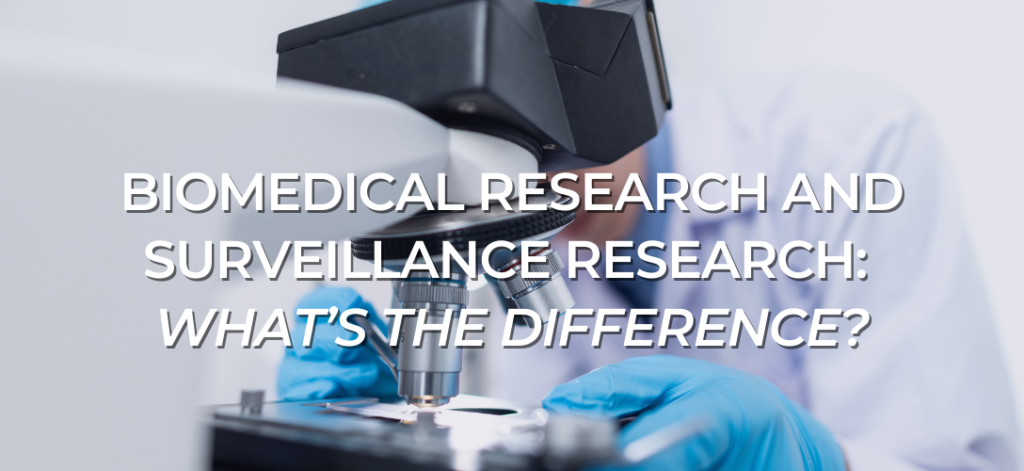
Published on January 5, 2020 | Research is a term often thrown around to describe everything from complex, controlled experiments to some light Google searching to find your favorite celebrity’s height. When we consider the value of medical research, though, it’s vital to understand how the various types of research feed into our societal knowledge of diseases and effective treatments. With polycystic kidney disease, there are two areas of research that are vital to understanding and ultimately ending PKD: biomedical research and surveillance research.
Biomedical Research: Seeking a Cure
Biomedical scientists seek to better understand or develop treatments for diseases in humans, translating the accepted principles of anatomy and physiology to medicine. While biomedical research is often led by physicians or biomedical scientists, many studies recognize the interdisciplinary nature of human health and include biologists, chemists, physicists, and other scientific professionals.
Most biomedical research begins at a basic, fundamental level of science before being applied to a specific objective like a new drug or surgical procedure. Biomedical research often develops into clinical trials or phased studies, using human volunteers that answer the key questions of efficacy and side effects. Trials are initially conducted in smaller, localized groups before expanding in later stages once safety and efficacy are demonstrated. Biomedical research is responsible for some of the most transformative events to take place in health care. Biomedical researchers across the country continue making strides in understanding and finding an ultimate cure to PKD.
Surveillance Research: Tracking the Disease
Surveillance researchers systematically collect data and observe wide populations to understand how a disease affects society at large. Surveillance provides a big picture look at a disease like PKD, answering questions like “how many women have PKD?” or “is there a correlation between PKD and diabetes?”
Rather than starting small, like biomedical research, surveillance researchers survey wide swaths of the human population to gain as accurate of a snapshot as possible for a disease. The resulting data (once weighted for demographics or other factors) can be compared with past surveillance to pull out trends and project the future with a greater degree of certainty. Ongoing analysis of PKD health information improves the research community’s understanding of the PKD patient population, providing benefits to our wider communities.
PKD Foundation and Research
As the PKD Foundation pursues its vision to #endPKD, both biomedical and surveillance research are critical to these efforts. Over the last 38 years, the Foundation has invested more than $50 million in basic and clinical research, making PKDF the largest private funder of PKD research. In recent years, the Foundation has also prioritized surveillance research by launching the ADPKD Registry, the first North American database of patients with ADPKD. The registry collects information in a standardized format that tells researchers about the patient journey, unmet medical needs, patient preferences, and the ongoing disease burden on patient and family routines.
Additionally, in 2020, the PKD Foundation urged Congress to direct the Centers for Disease Control (CDC) to provide data on the incidence, prevalence, epidemiology, and health outcomes of polycystic kidney disease. The Senate Appropriations Committee included this directive in its report and the CDC will provide this information in the coming months. This updated surveillance data from the CDC—paired with the ongoing biomedical research funded by PKD Foundation grants—will undoubtedly contribute to a greater understanding of PKD and a better future for PKD patients and their families.
The PKD Foundation is the largest private funder of PKD research in the U.S. Since 1982, we’ve invested over $50 million in more than 1,300 research, clinical and scientific grants, fellowships, and scientific meetings. Each year, the Foundation identifies and supports the work of scientists and researchers from around the world who look for ways to treat and eventually cure PKD.









0 Comments